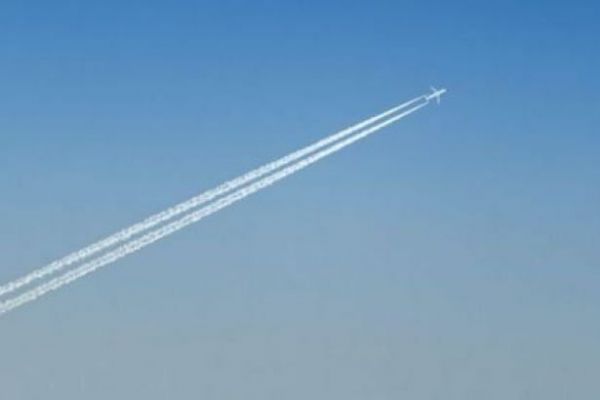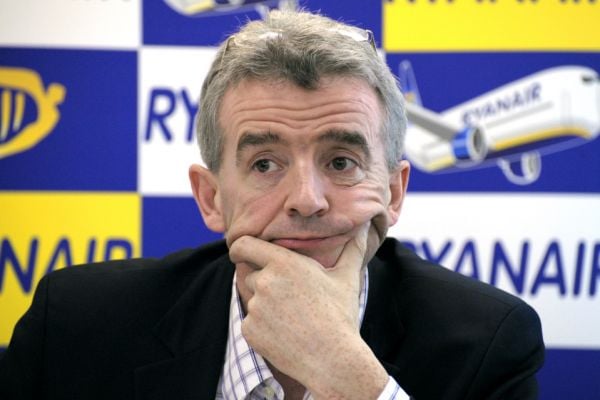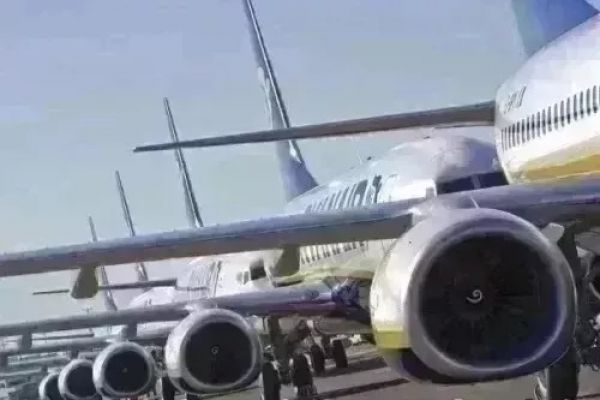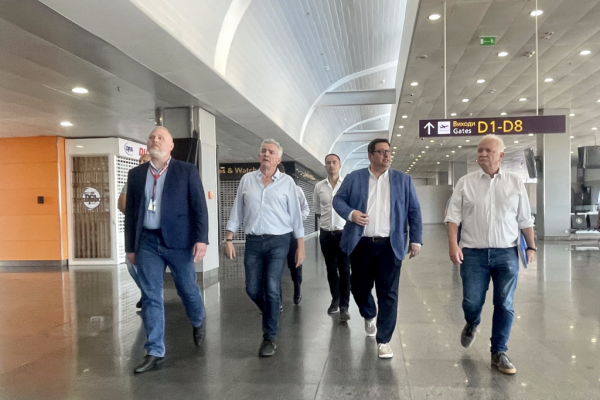Hospitality Ireland presents a round-up of global airline and travel news.
Deeper Q3 Loss For Malaysia's AirAsia Group On Lower Revenue, Forex Moves
Malaysian budget airline AirAsia Group Bhd reported a wider quarterly net loss on Monday November 22, as pandemic restrictions on travel in two of three of its operating markets weighed on revenue, while it logged a foreign exchange loss.
It said enhanced lockdowns and travel restrictions in Malaysia and Indonesia impacted its aviation revenue, although its Philippines unit had a strong quarter.
The group said in bourse filings it recorded a net loss of 887 million ringgit ($212 million) for the July-September quarter, 4.1% more compared with a loss of 851.8 million ringgit a year earlier.
Revenue for the period dropped 37% to 295.9 million ringgit. However, its logistics business Teleport tripled its revenue, contributing 53% to the group total revenue.
AirAsia's income statement filed to the stock exchange showed that a foreign exchange loss of 216.9 million ringgit further dragged its financial performance during the period.
The group said investments in technology, talent and network for its digital businesses and in Teleport also added to its losses.
The airline carried 351,971 passengers in the third quarter, 82% less than 1.9 million a year ago, while the load factor - which measures how full planes are - was little changed at 67%.
AirAsia said it has seen "an upward trajectory of sales with the gradual recovery of travel" since domestic travel reopened in the region.
"We expect the current sales momentum and reduced cashburn trend to continue into (the following quarter) as the Group is well positioned to serve the pent up leisure travel demand," it said.
It has also completed two rounds of renegotiation with lessors for lower lease rental in the future and expects to complete the renegotiations with all lessors by the end of the year.
AirAsia maintained that it will have sufficient liquidity to sustain the business operations throughout 2021 and 2022.
Earlier this month, the airline won shareholder approval for a rights issue to raise 1 billion ringgit.
U.S. Airlines, Airports Brace For Busy Thanksgiving Travel Week
U.S. airlines and airports braced for a surge of travellers ahead of the Thanksgiving holiday, hoping the weather forecast remains calm as millions more Americans will hit the roads or skies.
The U.S. Transportation Security Administration said Friday was the single busiest air travel day since the start of the COVID-19 pandemic in March 2020, as it screened 2.24 million travellers.
TSA expects to screen about 20 million air passengers during the busy Thanksgiving travel period, compared with nearly 26 million in the same period in 2019.
"We are ready," TSA Administrator David Pekoske told reporters on Friday at Washington Reagan National Airport. "We will be able to handle the passenger volumes that we anticipate seeing."
As vaccination rates have risen, many Americans are traveling for the holidays after skipping family gatherings last November and December.
Travel group AAA forecasts 53.4 million people will travel for the Thanksgiving holiday, up 13% from 2020 with most travellers going by car. About 48.3 million Thanksgiving travellers are expected to go by car, up from 47.1 million last year, but still below 2019's 49.9 million.
Car travellers will be facing gasoline prices hovering near the highest point since 2014, which will prompt some Americans not to make holiday trips.
Patrick De Haan, head of petroleum analysis at GasBuddy, said some Americans "are responding to the prices by slamming the car door shut and staying off the road."
Airlines are ramping up staffing and offering bonuses and other incentives to employees facing the busy holiday travel season.
Delta Air Lines said it expects to fly up to 5.6 million passengers from Friday through Nov. 30, nearly 300% over 2020's 2.2 million Delta passengers for the period but still below the 6.3 million passengers during the same period in 2019.
United Airlines said it anticipates more than 4.5 million passengers during the Thanksgiving travel period - about 88% of 2019 volume.
United Chief Executive Scott Kirby told Skift last week he had a lot of confidence in the airline's ability to fly its holiday schedule. "We've left ourselves a margin of error," Kirby said.
He warned problems can ripple and "If you are not careful it can cascade into a meltdown."
Some other airlines have in recent weeks seen weather issues result in hundreds of daily cancellations over several days.
United said it was adding about 700 domestic flights for Thanksgiving week, and would fly 87% of its 2019 domestic schedule in November.
Virgin Atlantic Sees U.S.-UK Planes 60%-70% Full In Coming Weeks
The head of Virgin Atlantic said he expected flights on its important transatlantic routes to be 60% to 70% full in the weeks running up to Christmas, and he did not expect COVID to force those borders to close again.
Shai Weiss told the Airlines UK conference that the airline still did not have great visibility on bookings more than three to six months out, but he expected the UK to U.S. route to drive the recovery as large parts of Asia remained highly restricted.
"We will be trading all the way up to Christmas, probably with a 60% to 70% load factor, which is a material improvement," he said.
Virgin Atlantic, founded by billionaire Richard Branson, is 51% owned by Branson's Virgin Group with the balance held by Delta Air Lines.
Virgin Atlantic was forced to raise cash during the pandemic to survive, including a £1.2 billion rescue deal. It also axed almost half of its staff to cut costs.
Sky News reported on Saturday that Branson and Delta were in talks about a further capital raise, of around £400 million, after talk of an IPO faded in uncertain market conditions. Weiss declined to comment on Monday November 22.
SpiceJet Charts Recovery Plan As MAX Planes Return To The Skies
India's SpiceJet Ltd has agreed to settle dues with lessors and creditors, and will conclude the hive-off of its cargo unit by January, the airline's chairman said, as it looks to clean-up its balance sheet as part of a recovery plan.
The budget carrier is reeling from losses due to the pandemic, which brought air travel to a near halt, as well as the worldwide grounding of Boeing's 737 MAX planes in 2019 following two fatal crashes.
Last week, SpiceJet and Boeing agreed to settle claims related to the MAX, which was cleared for flying in August by India's air safety watchdog. The Indian carrier was flying 13 MAX planes at the time of the grounding and has a total order of 155 aircraft.
"The compensation provided by Boeing is in cash and kind, and in the form of aircraft," Ajay Singh told reporters on Tuesday November 23. He declined to give financial details of the deal.
The airline now plans to speed up the induction of the fuel-efficient MAX, adding 50 new planes over the next two years, which would "make a big difference to SpiceJet's bottom line", Singh said.
This has paved the way for SpiceJet to settle its liabilities, especially with several of its lessors, to which it was unable to make timely payments during the pandemic.
The airline will also conclude a hive-off of SpiceXpress by January so the cargo business can raise money separately for its logistics push, Singh said.
SpiceJet is also exploring the viability of scheduled long-haul flights using widebody planes which it started during the pandemic as charter operations to destinations in Canada and Europe.
"We are undertaking financial reengineering at SpiceJet. Our balance sheet will be better, we are settling our liabilities with lessors. In one way, we are cleaning up the company and launching SpiceJet 2.0 from January 2022," Singh said.
From Pilots To Ramp Agents - U.S. Airlines Go All Out To Staff Up
From offering premium pay to hefty signing bonuses or poaching workers from other airlines, American carriers are scrambling to ramp up staffing for the holiday season and prevent disruptions that marred air travel this summer.
After reducing headcount by thousands during the depths of the pandemic, the industry is grappling with shortages of pilots, flight attendants and customer service agents.
Critics say the staff crunch is of the airline industry's own making as the deep job cuts last year, despite an infusion of $54 billion in federal aid to help cover payroll expenses, left it ill-equipped to handle the snapback in air travel.
Airlines have said the bailouts saved thousands of jobs, prevented bankruptcy and put them in a position to support the economy's recovery from the pandemic.
A Delta Air Lines spokesperson said the company had no furloughs or job losses related to the pandemic. However, the company did have about 18,000 staff departures last year in the form of retirements or voluntary separations.
With willing workers in short supply across the United States and companies frantically vying for them, carriers are being forced to spend more to attract talent.
"The reality is that the hiring environment has changed as a result of the pandemic," American Airlines' chief operating officer, David Seymour, told employees in a memo this month.
Piedmont Airlines, American's subsidiary, is trying to lure pilots with a $180,000 bonus offer. United Airlines is offering a $5,000 signing bonus for a ramp agent position in Boston.
Spirit Airlines has bumped up wages for its ramp agents by 30%. The ultra-low-cost carrier is offering a one-time graduation bonus of $1,250 and up to $4,500 a year in tuition reimbursement to flight attendants.
The rush to hire in a tight labor market is driving up costs at a time when soaring jet fuel prices and higher airport charges are also squeezing profits.
Southwest Airlines' wage expense as a percentage of revenue is up by 14 points this year versus 2019. There have been similar increases in salary costs at other carriers including United and American.
Yet headcount at U.S. scheduled air carriers in October was 14.3% below the pre-pandemic peak. By contrast, employment at restaurants and bars, struck equally hard by pandemic lockdowns, is just 6.4% below its peak before the COVID-19 outbreak.
Industry experts attribute the sluggish recovery to the fading attraction of jobs with passenger airlines.
Wages for some entry-level airline jobs, particularly low-skilled ones, pale in comparison with those in other industries even as the work has become more challenging.
The situation is worse at regional carriers, which operate 43% of the flights of American, United and Delta. These companies provide connectivity to low-density networks, but their pilots and crews are paid far less.
Even at the regional airlines that are subsidiaries of American and Delta, the wage gap is huge.
For example, entry-level flight dispatchers at American earn more than twice the amount made by their counterparts at Piedmont Airlines. There is a similar gap between pay scales at Delta and its regional unit Endeavor Air.
Keturah Johnson, who heads the union for Piedmont's flight attendants, said a lot of workers have been forced to pick up a second job as the wages at the regional carrier are not high enough to cover living costs.
Piedmont's flight attendants last month voted to authorize a strike, demanding better pay and benefits. "We are fighting for a livable wage," said Johnson.
Analysts say the labor crisis was in the making long before COVID-19 hit the industry. They trace its genesis to a wave of bankruptcies and consolidations after the 9/11 attacks, which made carriers too cost-conscious and excessively focused on productivity.
As airlines slimmed down, they became more reliant on employees logging more hours. The Association of Flight Attendants estimates the workload of flight attendants increased by at least 25% after 9/11.
The pandemic-induced plunge in air travel prompted the industry to double down on cost cuts, leaving it with the lowest headcount in more than three decades. Meanwhile, quarantine requirements or illness further depleted its resources.
"COVID was the tipping point," said Henry Harteveldt, founder of travel consultancy Atmosphere Research Group. "It ripped the protective layer of the airline industry and exposed many of its underlying challenges."
Airlines resumed hiring this spring as dipping COVID-19 cases brought passengers back. But the supply of new pilots is limited, and cargo carriers of Amazon.com Inc, United Parcel Service Inc and FedEx Corp are also vying for them.
Faye Malarkey Black, head of the Regional Airline Association, said the supply of new pilots fell 60% in 2020. This year, it is about 36% below pre-pandemic levels, she said.
Worries about a looming pilot shortage have dogged the industry for years. That did not stop carriers last year from pausing hiring and offering buyouts and retirement packages to thousands of aviators.
Faced with a crunch, they are now heavily poaching from regional carriers.
SkyWest Inc, which operates flights for Delta, American and United, last month said its attrition rate is running into double digits.
To be sure, regional airlines have been losing pilots to major carriers for years. But Black said that trend is now "on steroids."
Subodh Karnik, chief executive of Georgia-based ExpressJet Airlines, likened the demand for pilots to the frenzy in the U.S. housing market where houses are getting flooded with offers within days of their listing. He said one-fifth of the pilots at regional airlines are getting snatched away by big passenger and cargo carriers even before they can complete their mandatory training.
Inadequate staffing runs the risk of causing operational meltdowns of the kind that have led to a spate of high-profile flight cancellations in recent months.
Carriers such as American and JetBlue are offering bonuses, higher pay and other incentives to ensure they have enough workers for what is shaping up as the busiest holiday season in two years.
If the shortages persist, Karnik warned that major carriers could stop servicing less profitable routes.
United has decided to drop eight routes in the U.S. Midwest and South from its network. The airline's chief executive, Scott Kirby, told travel news industry website Skift last week that the cuts were the result of a pilot shortage.
"We don't have enough pilots to fly all the airplanes," he said.
Booking To Buy Swedish Travel Agency Etraveli
Online travel agency Booking Holdings Inc on Tuesday November 23 said it would acquire Sweden-based Etraveli Group for about €1.63 billion, its second major deal this month.
Etraveli, currently owned by private equity firm CVC Capital Partners, offers search, book and fulfillment services of flights through its consumer brands Gotogate and Mytrip.
It also operates airline integration company TripStack.
The company will remain headquartered in Sweden and operate as an independent business under Booking Holdings, led by its current management team.
The deal follows Booking's roughly $1.2 billion deal for hotel room booking website Getaroom announced earlier this month.
Aegean Airlines Posts First Quarterly Profit Since Pandemic Struck
Greece's largest carrier Aegean Airlines swung to a third-quarter profit as passenger traffic recovered from pandemic travel restrictions and resurgent tourist arrivals.
Aegean said net profit reached €51.3 million in the three months to Sept. 30, compared with a loss of €28.4 million in the same period last year.
Sales rose 115% to €333.9 million.
Chief Executive Dimitris Gerogiannis said that the third quarter was its first profitable quarter since the coronavirus crisis started in early 2020.
"We have adapted the programme flexibly, responding to opportunities from major markets such as Germany, France, Belgium, the Netherlands and Austria," he added.
The airline flew 3.3 million passengers in the quarter, up 70% from the same period last year.
The company's cash reserves at the end of September were unchanged from the end of the previous quarter at €543.5 million.
News by Reuters, edited by Hospitality Ireland. Click subscribe to sign up for the Hospitality Ireland print edition.









